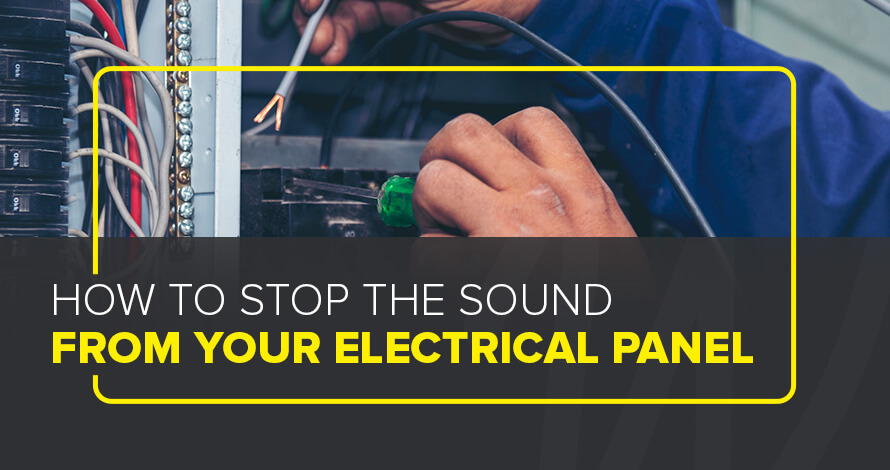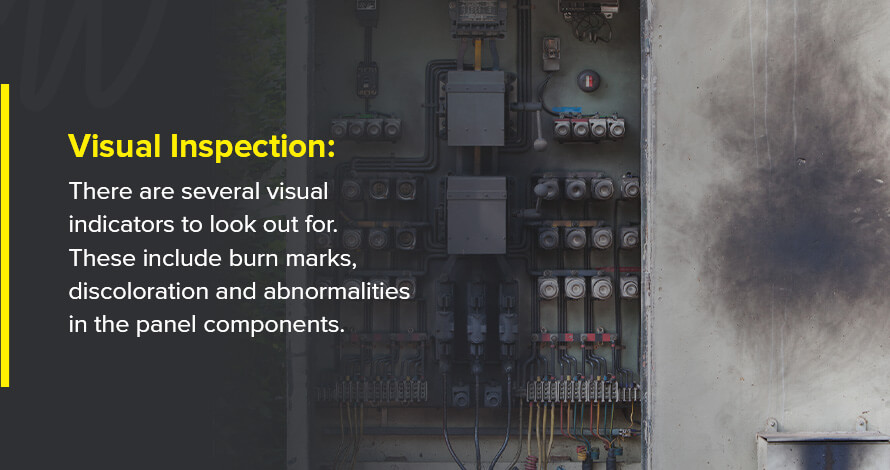
Hearing noises from your electrical panel can be disconcerting because these sounds typically indicate underlying issues you must address promptly. This guide will cover everything you need to know about the noises your electrical panel might be making. There are several reasons why your panel might be making noises, and knowing what these causes are is essential to solving the problem.
Understanding the Noises Your Electrical Panel Is Making
When an electrical panel starts making noises, it is usually a sign that something is wrong. If you hear crackling, popping, buzzing or humming sounds from your electrical panel, you must investigate before the problem escalates. These noises could be due to the following sources:
- Loose components: Loose components in an electrical panel cause vibrations, resulting in humming and buzzing noises. When components like wires, connections and circuit breakers are not securely fastened, the flow of electricity encounters resistance, leading to intermittent breaks in the circuit. The vibrations that occur generate audible noises like buzzing, crackling and humming.
- Electrical arcing: Arcing is when electricity jumps across small gaps, producing vibrations as it does so. The turbulent flow of electricity in your faulty breaker might cause humming, buzzing and crackling sounds.
- Faulty breaker: A faulty breaker will also produce noise. When a breaker malfunctions, it may not open or close properly. This leads to irregularities in the flow of electricity, which causes arcing.
- Overloaded circuits: Overloaded circuits produce noises due to increased electrical stress and potential overheating. An overloaded circuit carries more current than it was designed to. The excess current leads to elevated temperatures, causing components to vibrate or expand. These vibrations and the thermal expansion of parts cause buzzing, humming and crackling noises.
The Importance of Addressing the Noises
Addressing noises and signs of a malfunctioning electric panel is vital. These are the main reasons why it is necessary to address issues like buzzing sounds from an electrical panel:
- Safety: Identifying the cause of strange buzzing, popping and humming sounds from your electrical panel will help mitigate safety hazards.
- Prevent damage: By quickly addressing these noises, you can prevent problems from getting worse. Your electrical panel can get badly damaged if left too long in this state. Components will overheat and thermally expand, and overloaded circuits will start to malfunction.
- Fire prevention: Many electrical panel issues that produce sounds can result in an electrical fire. Arcing and overheating are the most common culprits. Promptly addressing these issues can prevent a fire.
- System reliability: The reliability of your electrical system depends on how you handle this situation. You can reduce the likelihood of unexpected failures and outages when you address noises quickly.
- Cost savings: Early intervention can save you from more expensive repairs or replacements.
- Compliance: Understanding and addressing electrical issues ensures you meet safety standards and comply with regulations.
How to Identify Electrical Panel Noises
Knowing how important it is to act promptly and address these problems quickly, here are some tips that will help you identify the electrical panel issues:
- Listen for the right noises: Buzzing, humming, popping and sizzling sounds from your electrical panel will get louder as the problems worsen. These noises indicate a variety of potential issues. Loose connections, faulty breakers and components under stress are common culprits.
- Clicking sounds: Rapid clicking noises suggest a malfunctioning breaker. These clicking noises might happen in bursts, while other noises will constantly emanate from the panel.
- Continuous tripping: A repetitive popping sound accompanied by frequent circuit breaker trips suggests a short circuit. The best way to respond to this issue is to find the source of the short circuit. This will help you determine how to prevent it from happening again.
- Periodic silence interruption: Intermittent silence in the electrical panel’s usual humming or buzzing might indicate momentary power loss or disruptions.
- Visual inspection: There are several visual indicators to look out for. These include burn marks, discoloration and abnormalities in the panel components. Visual cues are some of the most helpful ways to identify a problem with your electrical panel.
- Hire a service: Sometimes, the best way to find the source of a problem is to organize a home electrical safety inspection. Hiring a professional to inspect your electrical system is a reliable way of ensuring everything is OK. This is your best course of action if you suspect a problem with your panel.
Maintenance and Prevention Tips
Follow these maintenance tips to keep your electrical panel quiet:
- Regular inspection: Conduct frequent visual inspections of your electrical panel. Look for signs of wear and tear, loose wires and discoloration. Listen to the noise your electrical panel is making.
- Tighten loose connections: Loose components and connections cause strange sounds to come from your panel. Check your electrical panel for any loose connections, and tighten them immediately to avoid further damage. Practice good safety habits when doing this, as you can hurt yourself when handling electrical components.
- Upgrade outdated components: Outdated components are more likely to fail than newer parts. If you experience regular outages, then you might want to consider upgrading your electrical panel. Switching to a newer version is often a safe and reliable way to fix persistent issues.
- Educate household members: Inform your family and those you live with about how your electrical panel works. Telling them what to look for and where the panel is can help. They will tell you if they encounter any issues, and you can solve them before they worsen.
- Temperature control: Keep your electrical panel in a well-ventilated area to prevent overheating. Avoid placing items around it that might restrict airflow.
- Install surge protectors: Use surge protectors for sensitive electronic devices. This is an effective way to safeguard them from power surges and reduce the risk of damaging them.
- Avoid DIY electrical work: Unless you are a qualified electrician, it is better to avoid handling electrical repairs on your own. Improper electrical repairs can lead to more issues and safety hazards.
Call the Professionals to Help You Out
Keeping your electrical panel in working condition requires regular maintenance. Knowing the sounds to watch out for brings you one big step closer to addressing the issue. Solving the issues causing these sounds is important, but doing so yourself is risky. That’s why you should contact Wiretech Company.
Wiretech Company offers 24/7 electrical service and repairs at fair prices. If you wonder how much it costs to fix an electrical panel, contact us today. We can help you keep your electrical panel quiet or install a new panel to ensure you have reliable power.

